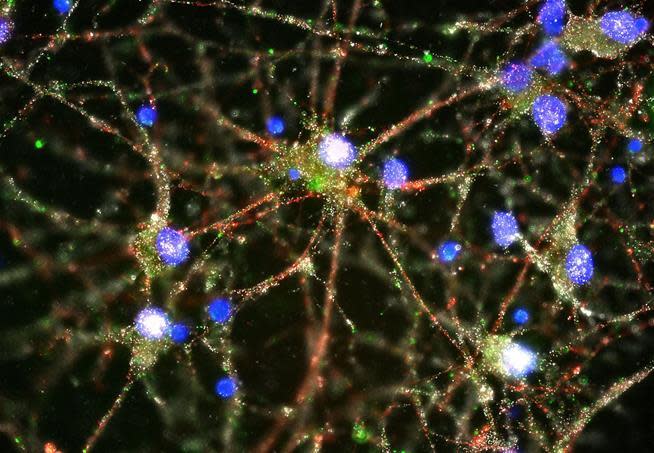New Study Is 'Crucial Turning Point' in Battle Against Schizophrenia

Scientists published Wednesday what the New York Times is calling a “landmark study” in the fight against schizophrenia. “This paper gives us a foothold, something we can work on, and that’s what we’ve been looking for now, for a long, long time,” one genetics professor says.
The Guardian reports the study, published in Nature, connects schizophrenia to a natural process known as “synaptic pruning,” which eliminates some connections between brain cells during adolescence. People with an “overactive” variant of the gene C4 lose more synapses during this pruning period and are about 25% more likely to develop schizophrenia, according to the Times.
Related: Doctor in Uber Attack: Here’s Why I Snapped
“For the first time, the origin of schizophrenia is no longer a complete black box,“ the Guardian quotes the director of MIT’s Broad Institute, where some of the research was done. "We’ve seen the power of understanding the biological mechanism of disease in other settings."
Related: Study: Certain Carbs Can Up Your Risk of Depression
The study means doctors may eventually be able to treat the cause of schizophrenia and not just its symptoms. It could also explain why schizophrenia typically shows up in late adolescence and—according to the study—why people with schizophrenia have fewer synapses in their brains.
Related: 5 Celebs Who’ve Struggled With Mental Health
While any new treatment derived from the study is a long way off, one mental health expert tells the Guardian it’s a "crucial turning point in the fight against mental illness.” (Could finger length also be used to predict schizophrenia?)
By Michael Harthorne
More From Newser:
Slept With Many People? 5 Ways to See Where You Rank
Wife: Husband Secretly Divorced Me 20 Years Ago
This article originally appeared on Newser: New Study Is ‘Crucial Turning Point’ in Battle Against Schizophrenia

